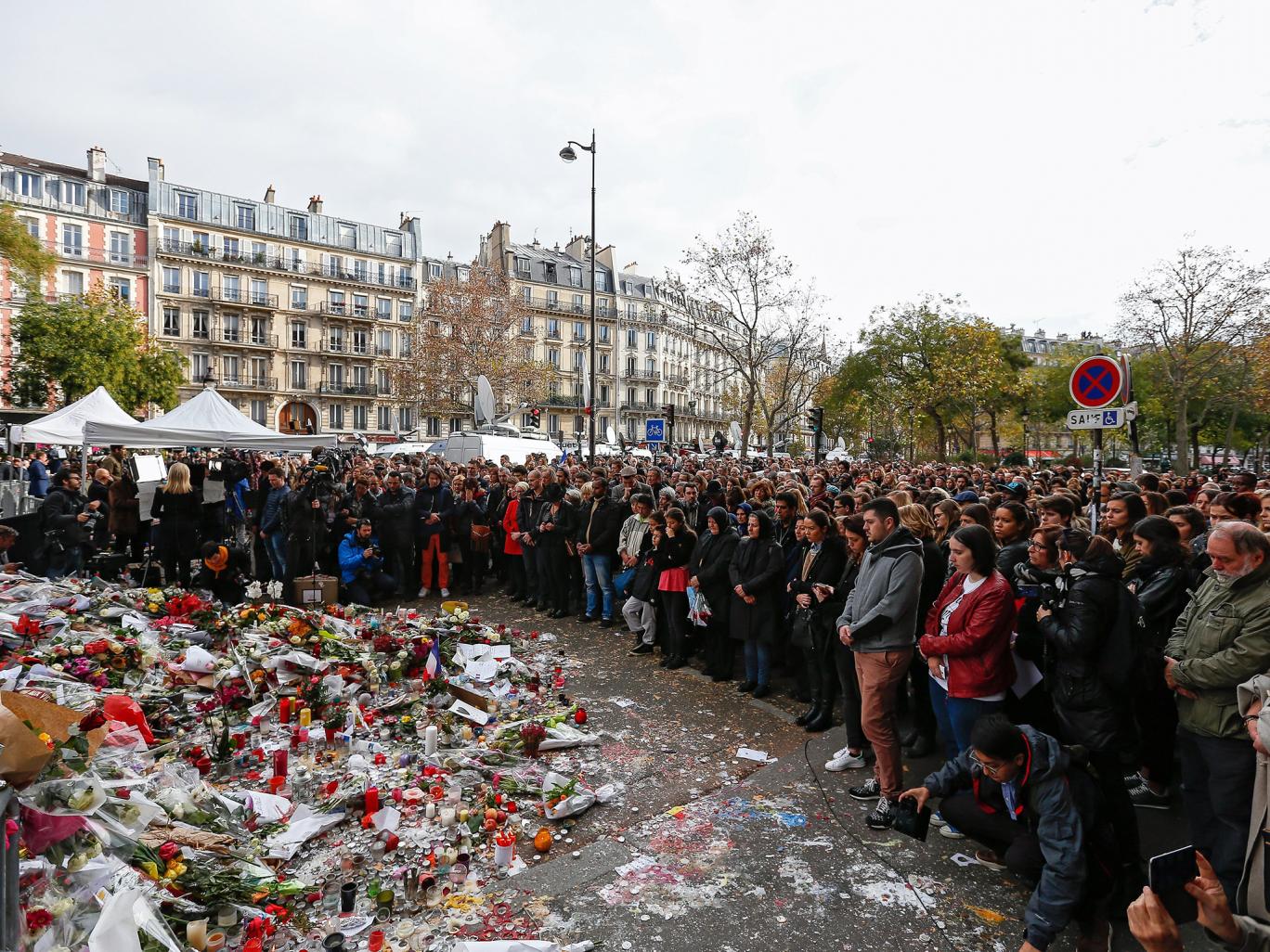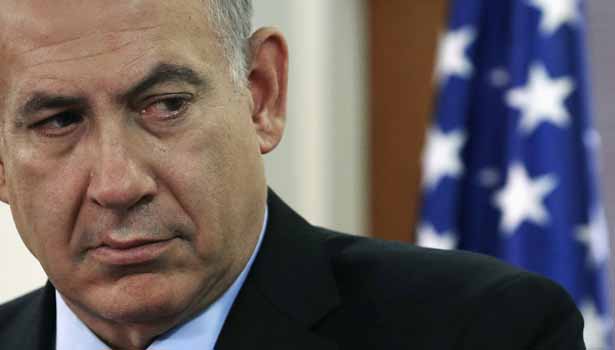In executing and taking responsibility for the November 13, 2015 terrorist attacks in Paris, the Islamic State has three objectives: revenge against France for its military involvement in the international coalition to eliminate the Islamic State; an undermined sense of security in France and evidence to the Western world that the struggle with the Islamic State is not restricted to Iraq and Syria; and aid to the Islamic State in its efforts to attract new recruits. Some in Israel may hope that the events in Paris will add to Europe’s understanding of the constraints involved in coping with Palestinian terrorism, and help mitigate the criticism of Israel voiced by various EU institutions and member states. Similar events in the past, however, indicate that this will not occur, and that no significant change in the European attitude on this question can be expected. As to the internal Palestinian theater, it appears that Hamas and the other armed Islamic organizations are aware that they might be associated with the Islamic State, and for this reason hurried to condemn the terrorist attacks.
On November 13, 2015, a series of terrorist attacks shocked France; President François Hollande and other French leaders called the episode the worst terrorist event in the country since the end of World War II. The massacre was carried out by local Muslims from France and Belgium, and possibly also by terrorists who entered Europe ostensibly as refugees. President Hollande called the terrorist attacks a “declaration of war,” and ascribed responsibility to the Islamic State. Indeed, the morning after the attacks, the Islamic State took responsibility for the deed, and threatened that the attacks were “only the beginning.”
The Islamic State cited two justifications for the attacks. The first was ideological. Paris was described by the jihadist organization as “the capital of prostitution and vice, the lead carrier of the cross in Europe.” It appears that France’s liberal values – including strong secularism, democracy, and freedom of expression – aroused and aggravated the anger of the Islamic State. But in addition to this general ideological justification, which marks France as the “enemy of Islam” due to its liberal values, lay a strategic consideration. France was targeted because of its military involvement in the international coalition fighting against the Islamic State strongholds in Syria. There may also have been a tactical consideration – the relative ease of conducting operations in France. The responsibility claim for the attacks ended in a warning to France that it would continue to be targeted by the organization unless it changed its policy toward Islam, stopped its “Crusader campaign” against the organization, and halted its airstrikes on “Muslims in the lands of the caliphate.”
In executing and taking responsibility for the attacks, the Islamic State has three objectives. First of all, the attacks constitute revenge against France for its military involvement in the international coalition’s efforts to eliminate the Islamic State in Iraq and Syria, and are designed to deter and warn other countries against joining that coalition. Second, the series of combined attacks in the heart of Paris is designed to undermine the sense of security in France – and the West in general – and to show the Western world that the struggle between it and the Islamic State is not restricted to the heart of the organization’s territory in Iraq and Syria. This motive was also reflected in the verse from the Qur’an quoted in the beginning of the responsibility claim: “They thought that their fortresses would protect them from Allah, but Allah came upon them from where they had not expected.” Third, the attacks were designed to aid the Islamic State in attracting more recruits, after many months in which its forces failed to achieve noteworthy achievements and suffered setbacks in Iraq and Syria (including the liberation of the city of Sinjar by the Kurds in the week preceding the attacks in Paris). The high level of performance in the Paris attacks and the large number of fatalities were designed to show supporters and potential recruits that the Islamic State was still alive and well, and in accordance with its motto of “remaining and expanding” was also striking the West on its home turf.
On the face of it, the mass murder is nothing new for Europe. Terrorist attacks by Muslim terrorists with Salafi jihadi ideology causing large numbers of casualties have already occurred on European soil. In contrast to those groups that committed those terrorist operations, however – al-Qaeda and its partners – the Islamic State has taken control of large territories in Syria and Iraq, and that is new. The organization is running those territories like a state, while fighting from within the area itself and from outside against military forces that include forces from the US, Europe, Russia, and Iran. In addition, the Islamic State organization may not have created the mass immigration of Arabs, Africans, Afghans, and Pakistanis to Europe, but it has made the situation worse, and is apparently taking advantage of it for its operational needs, in other words, to consolidate its infrastructure in Europe and to carry out terrorist attacks. The bloodbath in Paris took place at a time when Europe was in the midst of a public and inter-governmental debate about how to cope with the masses seeking asylum from the Middle East and elsewhere.
In contrast to the limited consequences of past terrorist events, it is possible that the Paris bloodbath will have far reaching effects on a number of issues, some of which may also have impact on Europe-Israel relations. For example, the events in Paris are likely to strengthen the nationalist and separatist movements in various European countries. The events will bolster these movements’ familiar arguments that the European Union (EU) provides neither economic solutions nor a solution to the security problems of its member countries, and that sovereignty and defensible borders must therefore not be upheld, because when there is a threat, national security takes precedence over liberal “European values” such as individual rights and freedoms, open borders, and asylum for persecuted people from outside the EU. The measures taken by France in the days following the bloody events indicate the emergence of a trend that will almost certainly sweep other member states along with it, including those considered liberal.
In addition, the events in Paris will aggravate the European dilemma about how to combat organizations like the Islamic State. Other than a few isolated cases in which certain countries sent military forces to the US-led coalition or French operations in its former colonies, the European Union states have rejected military activity on the ground against terrorist organizations, and their military response has been limited to aerial attacks. Against the realization that aerial attacks are not enough to defeat the Islamic State, arguments are likely to be raised against sending ground troops into combat, including, for example, concern about prolonged entanglement in the political and military quagmire of Syria and Iraq; major losses from the exposure of European soldiers in territory dominated by hostile groups; and, following the unfortunate experience in Iraq and Afghanistan, uncertainty about the ability to impose a sustainable solution in Syria and Iraq, even with intensive military intervention involving ground troops. Following the introduction of Russian and Iranian forces fighting against the Islamic State, possible European involvement in ground combat operations in Syria will be especially complicated. It is therefore likely that even if the fighting against the Islamic State intensified, it will continue to be based mainly on airpower, perhaps with the addition of limited raids by special forces. Furthermore, the combination of European reluctance to undertake more active involvement in the fighting on Islamic State home grounds, i.e., Syria and Iraq, and the fact that those taking the risk on themselves include Russia, Iran, and Hezbollah, is liable to weaken European criticism of the behavior by these parties in other theaters – Russia in Ukraine, Iran in nuclear activity and in the Middle East, and Hezbollah in terrorism and internal destabilization in Lebanon.
Some in Israel may hope that the events in Paris will add to Europe’s understanding of the constraints involved in coping with Palestinian terrorism, and help ease pressure on Israel and mitigate the criticism voiced in this context by various EU institutions and member states. Similar events in the past, however, indicate that this will not occur, and that no significant change in the European attitude on this question can be expected. Europe’s need for both Turkey and Iran in the matter of the refugees and in fighting against the Islamic State will also diminish from Israel’s ability to improve its situation vis-à-vis Europe. For example, after Erdogan’s decisive victory in the election, Turkey will likely continue to disrupt NATO’s security and intelligence cooperation with Israel. This effort is expected to be effective, due to the importance attributed by European countries to coordination with Turkey concerning the refugees.
As to the effect of the events in Paris on the internal Palestinian theater, it appears that Hamas and the other armed Islamic organizations are aware of the possibility that they will be associated with the Islamic State. For this reason, Hamas hurried to issue a condemnation and a message that the Palestinian people are suffering exactly the same kind of terrorism from the “Israeli occupier.” Palestinian Islamic Jihad also quickly condemned the terrorist attacks. It appears that these organizations are concerned that the West will now regard the various armed Palestinian movements in the same light as the Islamic State, which will detract from their ability to act against Israel in the political sphere and score point in global public opinion.
http://www.inss.org.il/index.aspx?id=4538&articleid=10947









